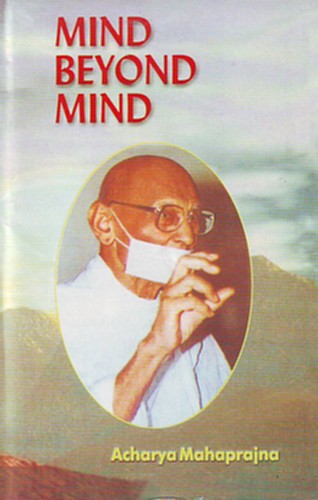
The power of speech is a characteristic, which distinguishes man from other animals. Speech is the universal medium of human communication. We know the value of speech, but do not know that not to speak is as valuable as to speak. Let me elucidate this point. Spiritually perfect beings do not need speech. Gods and Cakravartis have five Paryaptis (competences). For them mind and speech are one and the same thing. Human beings have six Paryaptis, speech being the sixth. Therefore they speak. We have to adopt speech when we are not in a position to communicate our minds to others directly. One who can communicate by means other than speech does not speak. Speech becomes useless when we can communicate with others without the help of a material medium. The more one acquires higher knowledge, the lesser does he speaks. The Tirthankaras had attained the highest knowledge. Why then did they employ language to communicate with others? Why did they talk and deliver sermons? Ancient commentators on religious texts called the Tirthankaras enlightened men who had attained a state where there was nothing left for them to do. But one who has attained the highest knowledge is filled with compassion for his fellow beings, and for this reason, he likes to communicate his knowledge to others. Compassion, sympathy, fellow feeling and friendliness persuade him to transmit his experiences to others for the latter's benefit. It is these feelings, which make the Tirthankaras speak. If two Kevala Jnanis (men with pure knowledge) met, they would not speak to each other. They would not need the aid of any material medium of communication, because they would be able to understand each other directly. The medium of language is relevant to those only who do not know.
There is an interesting story about two enlightened persons, Kabira and Farida. The two mystics once met at Banaras. The disciples of both became enthusiastic about the meeting, for they thought that the conversation of the two preceptors would be highly instructive. But to their great surprise, the two masters sat facing each other without speaking even a single word. They met two three times but remained reticent. Then Farida took leave of Kabira and went away. When asked by his disciples what the reason of his silence was, Kabira replied that, as his guest was an enlightened person, there was no need for him to talk. Farida also gave the same reply to his own disciples. The moral of the story is that only those who are not men of knowledge speak. The enlightened do not. Mahavira said, 'If you meet a scholar and an economist, you may try to explain to him your view, but if he does not agree with you, the best course for you is to withhold your tongue.' Akabar once asked Birbala, 'What will you do if you were confronted by a fool?' The latter replied, 'The best way to avoid an unfruitful controversy is to remain silent.' When two enlightened persons meet, they remain silent, because they can read each other's mind directly. Language becomes necessary only when you meet one who is less enlightened.
Withholding the tongue gives enormous scope for the development of knowledge. Talkativeness is an obstruction in self-knowledge. A fickle mind cannot possess knowledge. Language is a symbol of the fickleness of the mind. According to Pujyapada, speech is the medium of social commerce. A solitary man does not need language. Speech is preceded as well as followed by the fickleness of the mind. There can be no language unless the mind begins to work and think. As a matter of fact, speech itself is an activity of the mind. In this way all the precedents and antecedents of speech as well as speech itself disturb the inner world of man. That is why all those who practised sadhana used the minimum of speech. They kept silent. Mahavira was asked as to what the purpose of silence was and replied that withholding the tongue produced a state of thoughtlessness. The term Nivviyarattam is a Prakrit word, which has two meanings: thoughtlessness and the absence of passions. Vacanagupti (withholding the tongue) brings about the cessation of thinking and passions. It enables the mind to regain the equilibrium, which has been disturbed by speaking. If we withheld speaking, there will be no need for thinking and the mind will enter into a state of thoughtlessness.
Withholding the tongue has another advantage. It does not involve us in any kind of controversy. When there is no fuel, there will be no fire. If one of the two persons who quarrelled became silent, the quarrel will end.
The third advantage of withholding the tongue is freedom from egotism and a sense of false pride. The ego begins to expand and predominate us if we go on speaking. We often take pride in speaking and in the kind of language we employ. If we know more than one language, we become more proud.
That is why Mahavira said that the knowledge of several languages does not give us self-assurance. The President of America came to meet Swami Ramatirtha when the latter visited the United States of America. He asked Swami Rama, 'How do you call yourself an emperor? You do not possess anything. Your personal belongings are meagre.' Swami Rama replied, 'I am an emperor simply because I do not possess anything. The poor try to grab and possess things. I am not a poor man because the whole world is mine and I need not grab and store anything. It is you people who are poor because you grab and store things.' Swami Rama's reply is very meaningful. Acharya Mahaprajna
Acharya Mahaprajna

